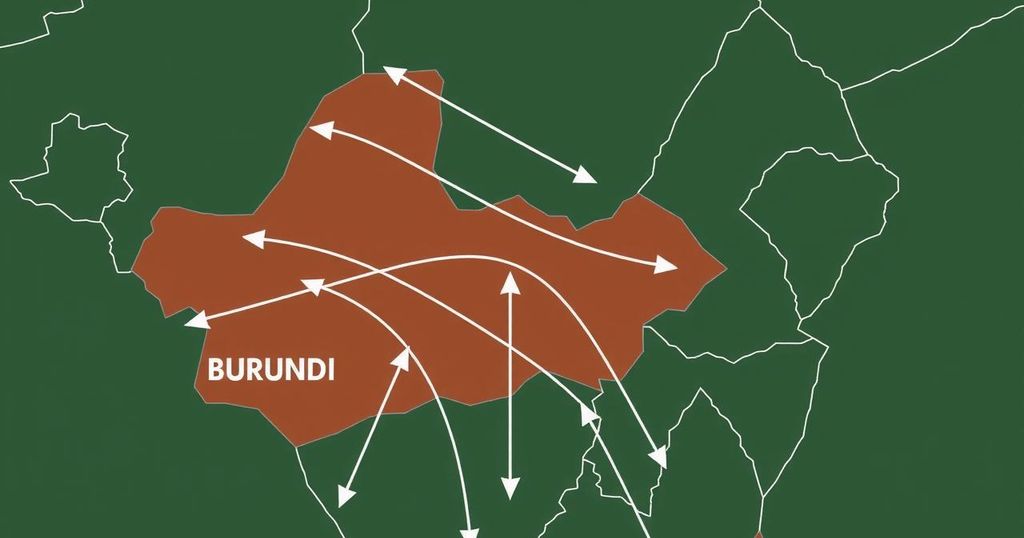Burundi and Uganda have enacted military adjustments due to rising violence from the M23 group in the eastern DRC. Burundi faced troop withdrawals under pressure, while Uganda secured Bunia amid militia actions. The situation threatens to escalate, reflecting fears similar to those during the Congo wars, with significant humanitarian implications.
Countries bordering the eastern Democratic Republic of Congo (DRC) have taken measures to bolster their defenses in response to escalating violence in the region. Burundi has reportedly withdrawn troops amidst increasing threats, while Uganda has successfully secured the strategic city of Bunia. Despite fears of a resurgence of conflict reminiscent of the Congo wars of the 1990s and 2000s, both nations are attempting to manage the instability resulting from the advancing M23 armed group, which has captured significant territories, including Goma and Bukavu.
Burundi, which previously deployed over 10,000 troops to support the Congolese army against the M23 while also targeting Burundian rebels, faced significant setbacks. Senior officials have confirmed that clashes forced their troops to retreat, with a military source revealing, “We had to make a tactical withdrawal under enemy attack yesterday.” While the army’s spokesman denied any retreat, reports indicated that Burundian positions in key areas have diminished, leaving troops in dire conditions without resupply of provisions and ammunition.
The violence unleashed by the M23 has already resulted in thousands of deaths and the displacement of countless civilians. The United Nations has reported distressing accounts, including executions of children amidst the chaos. Furthermore, a rebuke from the United Kingdom has been directed at Rwanda, a supporter of the M23, for its alleged role in the destabilization of the region, despite its denial of direct military involvement.
The control of Goma and Bukavu by the M23 has given the group dominion over Lake Kivu, which has allowed for a semblance of stability in boat transport services across the lake. Meanwhile, local sentiment reflects relief at the return of these services, a welcome change amid the tumult.
In Uganda, military forces have been deployed as a proactive measure against local militias responsible for casualties. Although this deployment is based on long-standing agreements with the DRC, it is viewed as a precaution to prevent violence from spilling into Ugandan territory. Analysts suggest that the unrest involves localized issues, but the potential for regional fallout remains a concern, echoing fears of historical conflicts that reshaped the region in the late 1990s.
The ongoing tensions raise alarms over a potential repeat of the catastrophic Second Congo War, which was characterized by involvement from multiple nations and led to millions of deaths due to violence and humanitarian crises. Experts advocate for cautious monitoring of the situation as Burundi and Uganda navigate escalating unrest.
In conclusion, the growing unrest in the eastern DRC, primarily instigated by the M23 armed group, has compelled neighboring nations like Burundi and Uganda to re-evaluate their military strategies. Burundi is experiencing significant troop challenges, which may affect regional security dynamics. The situation could potentially evoke memories of prior conflicts in the region if not addressed appropriately. Meanwhile, Uganda has stepped up to secure Bunia amidst local militia violence, indicating an ongoing concern for stability in the area. Recurrent violence in eastern DRC not only threatens the populations within the region but also poses risks for neighboring countries.
Original Source: www.blackbeltnewsnetwork.com




